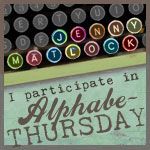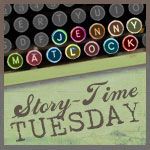Since I’ve started writing “Sundays with Steve”, I’ve been thinking about vignettes of my life growing up in North Idaho. I realize the town where I grew up and the life I lived with my family is really a classic, all-American story. Perhaps you will recognize some of your childhood in these writings. And perhaps you will recognize the town you grew up in along with some of the characters you knew. Mrs. Steve has encouraged me to write these attempts of “creative writing” as opposed to the more factual journalistic style I was trained in and practiced in my early career many years ago. So my apologies if I stumble a bit here and there trying to blend the two styles together.
This is a continuation of Crossing the Plains, a fascinating tale of a covered wagon trip from Missouri to the Washington Territory in the post-Civil War period when the U.S. population poured to the West. It was written by a distant great great aunt, Barbara Jane Matlock McRae in 1939, when she was 81. This story will occupy this space for the next several weeks, as it is a fascinating peek into what we often consider the pioneer days.
Part 4

On the 8th day of may 1875 we loaded our wagons and started from council bluf iowa to cross the plains to washington terrytory. We dident know but what we would be scapled by the indians but we were brave enough to try.
I forgot to mention that we sold the pony and saddle way back in misouri. We children certainly felt bad to part with him, he was such a gentle nice dark prety pony. Father thought we beter let him go, it would be extra expense to try to keep him and take him across the plains. When we left him and started on he looked after us, whinneyd as much as to say goodby, the youngsters all creid.
We were all ready to start bright and early may the 8th 1975. Our furniture had all been sold, we dident have much. I and my sister had slept all winter on a big feather bed on the floor. The three families all lined out with my father in the lead. We stoped on the council bluff side of the misouri river and got our dinner. Our little black and tan dog was with us but when we drove on the ferry boat he was afraid . He was always afraid of fery boats and bridges. The boys always would pick him up as he was a small dog and carry him, but they forgot him, so we left him. We dident miss him for a while then we dident know what became of him until long afterwards. Our neighbor children at council bluf wrote our children that he came back to our old home and cried, and they took him in and gave him a home as long as he lived. We felt bad to think we lost our only dog.
We passed through Omaha and on out about 12 miles and campt for the night. The next morning we were astir early as we had made a start for the far western country. It was quite warm and cludy in the fore noon and about noon we drove by a little stream and campt for the noon hour. A terirific thunder storm came up. I don’t think I ever saw rain poor like it did that day. It poored through our wagon covers like they were sives. We just nearly drowne. After the storm ceast my father went to a store in the little town and I believe the name of it was cresent city nebrasky. He bought black oilcloth and put it over the tops of both wagons and sewed it fast with corse thread. After our too wagons were marked clear across the plains and it surely kept out the rain and answered as a shade from the glaring sun of the plat river country.
We four wagons traveled a lone for several hundred miles. There was nothing to brak the manotiny, only the union pacific train would pass going one way or the other. Some times the wagon trail would lead off from the rail road and some times we could travil for miles and miles a long the side of the rail road track. Their were no habitation only an ocational ranchers cabin for some batchlor. Once in a while an doba house that had been built in earlerier times for a pony express riders station would be occupied some family who was keeping some cows. They would sell milk and butter and cream to the emigrants who were very glad to get it. Some times we could get fresh buffalo or dear or fresh beef.
After we had been traveling for too or three weeks, late one eavening we drove off the trail down in a kind of bacin, in the bacin were probly 10 acres. There was a bubling spring of clear water with a small stream running down a little revene. It made an ideal camping place. Late in the eavening when the sun was going down behind the clouds of read and gold with a purple hase behind, a man came to the rim of the bacin and called down and askd if there were room for any more campers. Father called up to tell him there were plenty of room so about twenty five wagons drove down and formed in a circle kind of a corel, as they had been in the habit of doing in fear of an atact by the indians. This bacin of a place where we were campt would have been one of the best places in the world to be attacted. Down in this bacin place the indians could have swarmed over the hill and killed the whole of us.
That night we had eciting experience. After these wagons got into camp it was prety late. They hobbled or staked there horses a round camp and up on the hill above the camp. They built several camp fires to cook their evening meal. We had ours and was all to bed early as we were prety tired. Travling slow that way gets prety tiresom. It seemed too of the women at one camp and too men at another camp did not go to bed when the others did. It seemed the women did not know the men were up and the men did not know the women were up. One of the men went up on the hill among the horses. The women dident know he went up and they saw him on top of the hill silueted againsted the sky as their was a pale moon. They got freightened and instead of calling some of their own men, they being strangers to us, they ran to my fathers wagon and told him there was a man up on the hill among the horses. Father jumpted out of bed, sliped on his clothes, grabed his gun, woke the boys and told them to get up and get their guns as some one was among the campers horses. He told the too women to wake up their men. He started up the hill to where the man was standing looking a round among the horses. He got within ten feet of the man without him knowing and told him to put his hands up, which he did quickly. He asked him what he was doing and what he wanted. He said nothing, that he belong in the camp and just thout he would take a look among the horses and see if they were all right. Our mules were tied to our wagon, and were always tied to the wagons at night and fed grain when we could get grain. My father told this man if he had not put up his hands he surely would have shot him, that he thought he was a horse thief picking out a horse or an indian scouting a round to stampeed the horses and atct the camp. The whole camp was aroused and excited. No one could figure out why those women and men were at seperate camps at eleven o clock at night.
TO BE CONTINUED ON SUNDAY, FEBRUARY 27
(c) 2010 Stephen J. Matlock
This publication is the exclusive property of Stephen J. Matlock and is protected
under the US Copyright Act of 1976 and all other applicable international, federal, state and local laws. The contents of this post/story may not be reproduced as a whole or in part, by any means whatsoever, without consent of the author, Stephen J. Matlock. All rights reserved.




















9 comments:
I just love this!
Another fascinating read. Great job.
I'm glad that you're not changing the spelling in this story. Somehow the original spelling gives more of the flavour of a young girl writing and makes the whole thing more immediate.
The part about the dog just brought me to tears. So glad he was taken in by their friends and had a home. And leaving their loyal family pony, heartbreaking. I'm still teary eyed! I love this story. She expresses their fears well. Things had to be so basic and extremely rough on them. Great story Steve!~Ames
I just found your blog and I am really enjoying this story. Just read the first four parts and can't wait for the next one!
The father in this story is amazing and resourceful. I can't imagine a trip like this with all of those kids.
Still loving this very much. I would have been crying that whole trip after leaving the pony behind and the dog too. I felt sorry for them all, but glad the pony and dog were alright. Those of us that think we have it hard sometimes, should read this and other stories of our ancestors. Looking forward to the next chapter. Hugs
Steve, this chapter went way too quickly! I am anxious for the next one to start. This is a terrific read.
You write very touching. Good story.
yvonne
Still fascinating stuff. Enjoying reading a bit of first person history!
Post a Comment